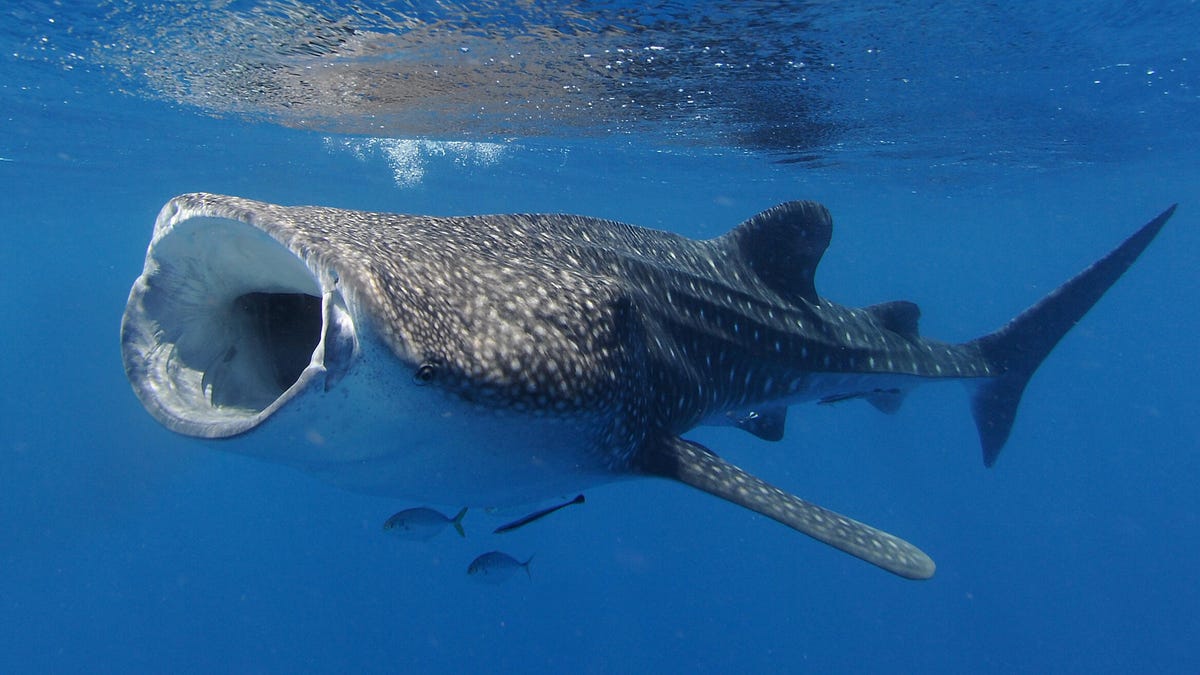Female whale sharks are officially the biggest fish in the sea
... that we know of.

Ohhh, who is the biggest fish under the sea? Rhin-codon ty-phus!
It's pretty well undisputed that whale sharks are gigantic. With an average adult length of eight or nine meters (roughly 28 feet), they're whoppers compared with some of your favorite marine life forms. But for almost a decade, the battle of the sexes remained: Who's bigger, male or female?
According to a new study, published in Frontiers in Marine Science on Wednesday, a decade-long analysis has confirmed female sharks reign supreme as biggest fish in the sea -- overtaking the males to reach an average of 14 meters (almost 46 feet).
Mark Meekan, a fish biologist at the Australian Institute of Marine Science and first author on the paper, noted some whales have even reached up to 18 meters (59 feet) long.
"That's absolutely huge -- about the size of a bendy bus on a city street," he said. "But even though they're big, they're growing very, very slowly. It's only about 20cm or 30cm a year."
Because of the slow growth rate, the team tracked 54 individual whale sharks over the course of 10 years, recording more than 1,000 measurements with stereo-video cameras.
"It's basically two cameras set up on a frame that you push along when you're underwater," said Brett Taylor, a biologist at the Australian Institute of Marine Science scientist and the study's co-author.
"It works the same way our eyes do -- so you can calibrate the two video recordings and get a very accurate measurement of the shark," Taylor said.
The team also discovered the increased size of female whale sharks may be advantageous when it comes to producing offspring. Only one pregnant whale shark has ever been documented, but unlike most sharks that carry between two and 12 young, the whale shark held up to 300.
The discovery may also have implications for conservation efforts. Whale sharks have been listed as an endangered species since 2016. Given their long growth rates, whale sharks being targeted by fisherman might result in a further population decline for the animals.
"If you're a very slow-growing animal and it takes you 30 years or more to get to maturity, the chances of disaster striking before you get a chance to breed is probably quite high," Meekan said.
"And that's a real worry for whale sharks."

